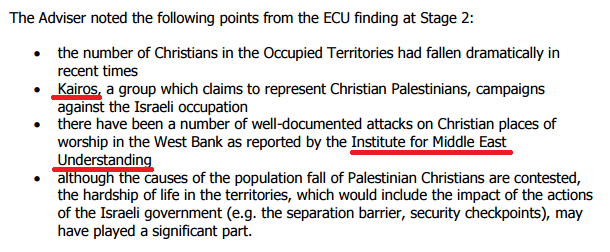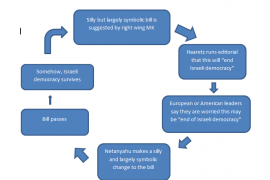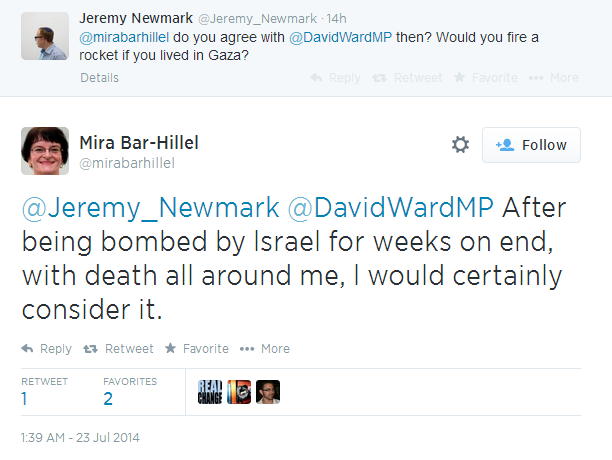In April 2015, listeners to an item about the plight of Christians in the Middle East broadcast on BBC Radio 4’s ‘Today’ programme were told by the corporation’s Middle East editor that:
“…Palestinian Christians as well feel threatened not just of course from extreme Islam, but they also feel threatened by what the Israeli government might be doing.”
Members of the public who complained to the BBC received a Stage 1 template response which claimed that “he was describing the mood of Palestinian Christians, not the policies of the government of Israel.”
One member of the public who was not satisfied by that response took his complaint to Stage 2 where it was rejected by the BBC’s Editorial Complaints Unit (ECU). The gentleman then appealed against that decision to the BBC Trust and when that appeal was also rejected, requested that the Trustees review the decision not to proceed with his appeal. The Editorial Standards Committee decided that the appeal did not qualify to proceed for consideration and the details of that decision and the previous ones were published by the ESC last month.
The document (pages 48 – 52 inclusive here) shows that from Stage 2 onwards, BBC staff handling this complaint relied on information sourced from three remarkable sources.


All three of those organisations are campaigning bodies with a clear political agenda.
Founded in 2005, the Institute for Middle East Understanding is a US-based organisation with a mission to “offer journalists and editors quick access to information about Palestine and the Palestinians, as well as expert sources — both in the U.S. and in the Middle East”. IMEU promotes the BDS campaign against Israel and produces characteristically one-sided ‘reports’ and ‘fact sheets’ which – inter alia – promote the ‘apartheid’ trope and the notion of “official and unofficial discrimination” against Christians.
Sabeel is an organisation known not only for its promotion of the ‘one-state solution’ (i.e. the elimination of Israel as the Jewish state) but also for the employment of ‘liberation theology’ and supersessionism in its anti-Israel campaigning.
Kairos – or Kairos Palestine – “is an NGO that promotes the 2009 Kairos Palestine document, drafted by a small group of Palestinian Christian clergy [see here]. It calls for BDS (boycotts, divestment, and sanctions) against Israel and denies the Jewish religious and historical connection to any part of the Land of Israel.” Kairos Palestine describes terrorism against Israelis as “legal resistance”.
So as we see, the BBC’s approach to a complaint about inaccurate portrayal of Israel was to consult and adopt information from sources which are actively engaged in anti-Israel campaigning and delegitimisation.
In our submission to the DCMS consultation on the BBC charter review we noted that:
“Whilst the BBC recognizes the fact that “some ‘experts’ may have a history of sympathising with one cause or another, even if they have no overt affiliation”, it frequently uses contributions from academics with a record of anti-Israel political campaigning and even consults with such sources when dealing with complaints. Clearly the BBC needs to ensure that all ‘experts’ consulted are neutral and impartial.” [emphasis added]
As this example shows, that problem is obviously not limited to consultation with campaigning academics but also includes campaigning political NGOs. As long as that clearly unsatisfactory practice continues, the BBC Complaints system can only maintain its dismal reputation.


